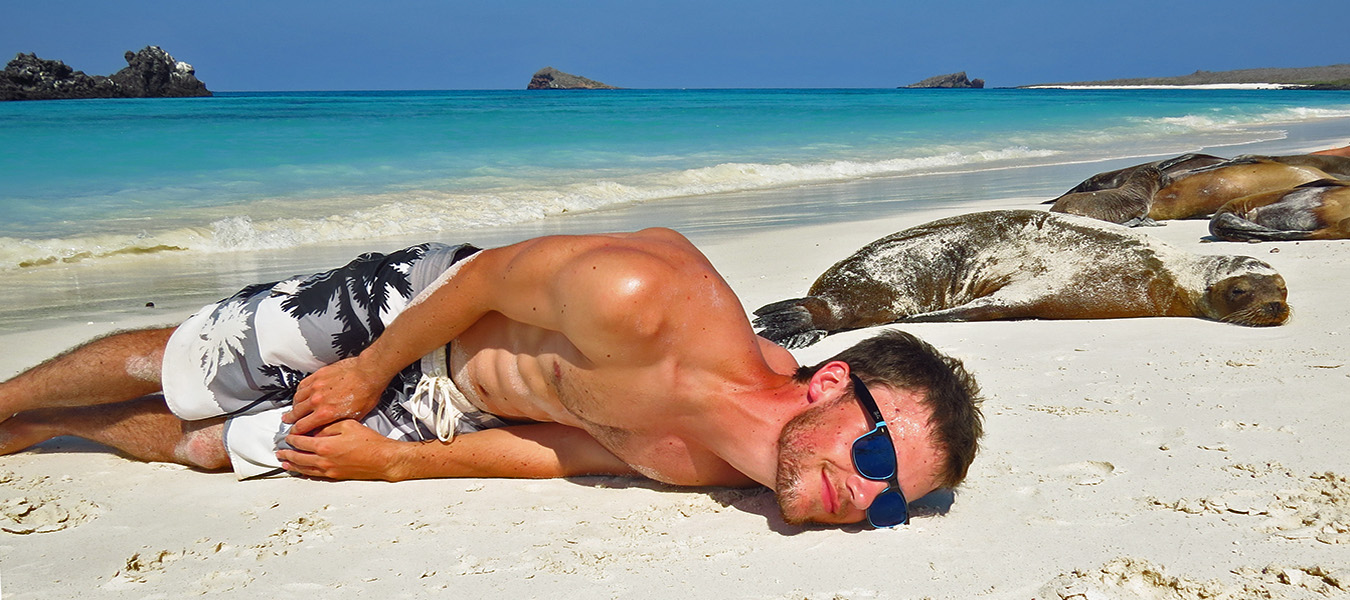
This course provides an in-depth survey of the geography, natural history and ecology of tropical marine ecosystems. We discuss fisheries and other human impacts, and conservation of coastal and marine ecosystems. Our goal is to provide the scientific background necessary for conservation and research in marine environments, whose protection has long been overlooked and under-implemented due to a variety of factors we will discuss in detail.
Course activities include lectures and guided field trips (bring your mask and snorkel!), enabling close-up study of the natural history of sandy, rocky and coral systems. The undoubtable highlight of the course is a three-week stay in the world-famous Galapagos Marine Reserve, a veritable museum of evolutionary adaptation and speciation. Our Galapagos experience includes an week-long natural history cruise, plus two-weeks living with host families while studying at a local university on San Cristóbal Island. On the mainland, we explore Ceiba’s Lalo Loor Dry Forest Reserve, which protects a scarce remnant of Ecuador’s coastal deciduous forests, and tour mangroves on the northern coast (see Where We Go).
On San Cristóbal, each student has the unique opportunity to carry out their own marine research project at the GAIAS station. The facility has a fine library, modern classrooms and computer facilities, internet access, and numerous marine sites within walking distance of the door! Previous students have studied sea lion behavior, damsel fish territories, and the effects of the local population on intertidal diversity. The opportunity to live with Galapagos host families and do your own research there is truly an experience you will find nowhere else!
This is what you might expect to see and do in Galapagos! Video by 2015 TCS student Cooper Siepmann